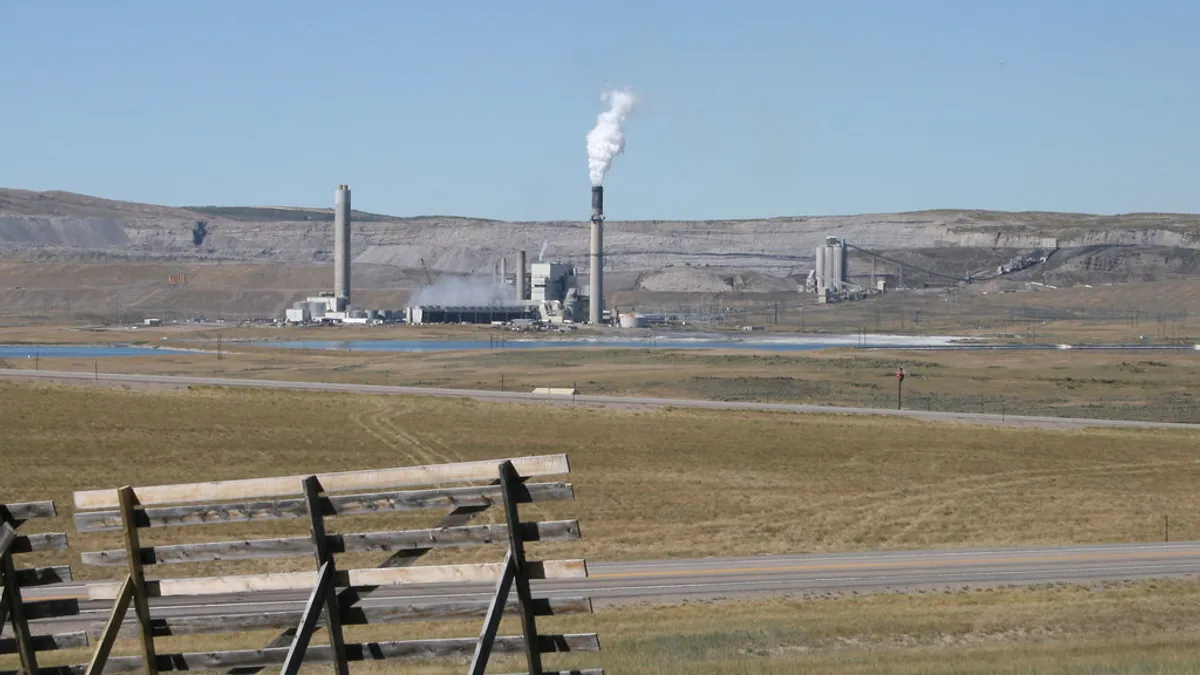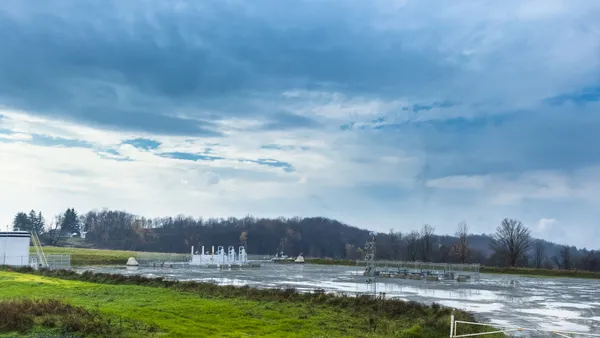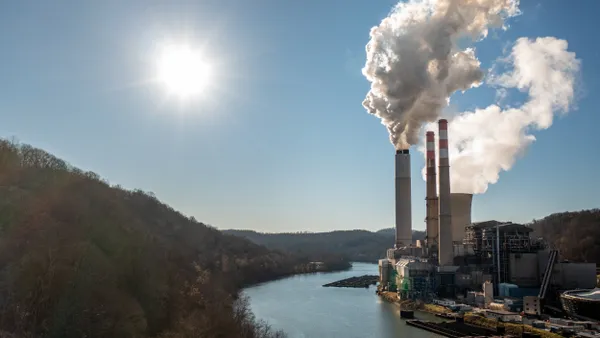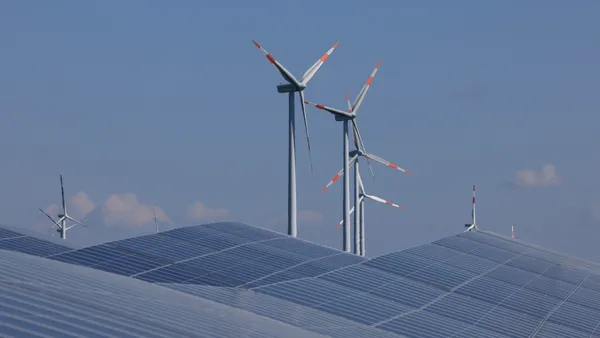Dive Brief:
-
The Wyoming legislature has sent a trio of bills to the governor that, pending approval, aim to prolong the use of coal-fired generation by requiring an expanded economic analysis of any proposed coal plant closures, and creating a $1.2 million fund to litigate coal-related legislation in other states.
-
Wyoming joins four other states — Indiana, Montana, North Dakota and West Virginia — that have passed or are pursuing legislation that seeks to prevent the closure of coal-fired power plants in some way, according to Dan Shea, senior energy policy analyst specialist for the National Conference of State Legislatures.
-
The bills are intended to prevent economic harm caused by the premature closure of coal-fired power plants in Wyoming, according to the governor's energy advisor Randall Luthi. However, the local Sierra Club says the bills may increase the state's economic pain.
Dive Insight:
Wyoming doesn't intend to save coal. But a series of bills that just passed the Wyoming legislature aim to prolong the state's coal economy for as long as possible, Luthi said.
"We're not going to abandon our coal industry," he said. "Coal has paid for our K-12 education for two generations. It still provides 5,000 jobs. Burning coal isn't the issue — it's the reduction of CO2."
Luthi said he plans to recommend Gov. Mark Gordon, R, sign each of the three coal-related bills that are expected to come across his desk this week. House Bill 166 requires Wyoming utilities planning to close coal-fired power plants to prove to the state's Public Service Commission (PSC) that the closure will not impact reliability and will result in a cost savings to customers, while Senate File 136 authorizes the PSC to take the potential economic impact of coal plant closures into account while making that analysis.
The third bill, House Bill 207, creates a $1.2 million fund the Wyoming Office of the Governor may use to litigate coal plant closures or laws accelerating the closure of coal plants, such as renewable portfolio requirements, in other states.
Luthi said he doesn't believe the trio of bills will turn the tide that's now against coal, but the state hopes to slow the industry's decline to reduce the economic impacts that have come with it.
"We fully expect the coal market will continue to decrease," Luthi said. "Our efforts are to extend it and keep it available as an option. It will never be the heyday that it was in the 80s and 90s, and we want to make sure we're able to produce renewable energy as well."
For example, Luthi said, the legislature pulled language from the original version of Senate File 136 which authorized the PSC to consider line-of-sight impacts as well as economic impacts of new energy development, because critics feared a viewshed analysis could curtail the development of wind generation in Wyoming. The state also hopes to drive greater interest in carbon capture, sequestration and storage, Luthi said.
But Connie Wilbert, director of the Sierra Club's Wyoming chapter, said state lawmakers are "desperately clinging" to coal in lieu of addressing the real economic problems approaching the state.
"What we have in this state is a revenue problem," she said. "A big revenue problem. As fossil fuel revenue declines, we need to figure out how to deal with that, and so far state elected officials are unwilling to consider changes in economic structure."
The state has no income tax, no corporate tax, and very low property taxes, Wilbert said, and so is heavily dependent on income from fossil fuel industries.
"It cuts across everything," she said. "It's our educational system. It's our access to medical care. It's our roads and bridges and highways. Everything is suffering right now form the diminishing revenue the state has, and our elected officials have not made any progress on dealing with the issues that we face at that fundamental level.
Wilbert said she did not believe any of the three bills would succeed in slowing the decline of coal, but could make energy generation less economic in the state. If utilities cannot close coal plants as out-of-state-buyers pull out — Wyoming generates more power than it consumes — the cost per unit of electricity will increase for state residents, Wilbert said. That, she said, would only exacerbate the state's economic turmoil.
"What these bills speak to me," she continued, "is desperation. Desperation to avoid the reality we're facing now. And unfortunately the people who are going to pay the price are the people who live here and whose children go to school here."













